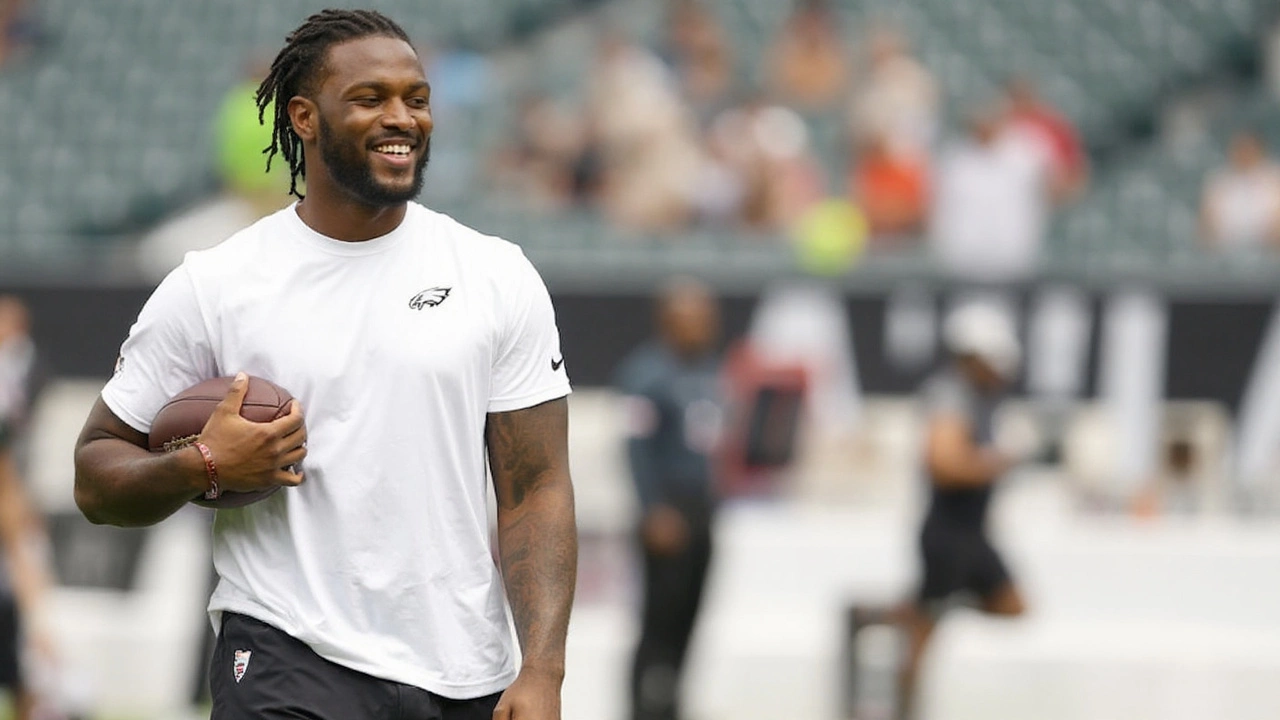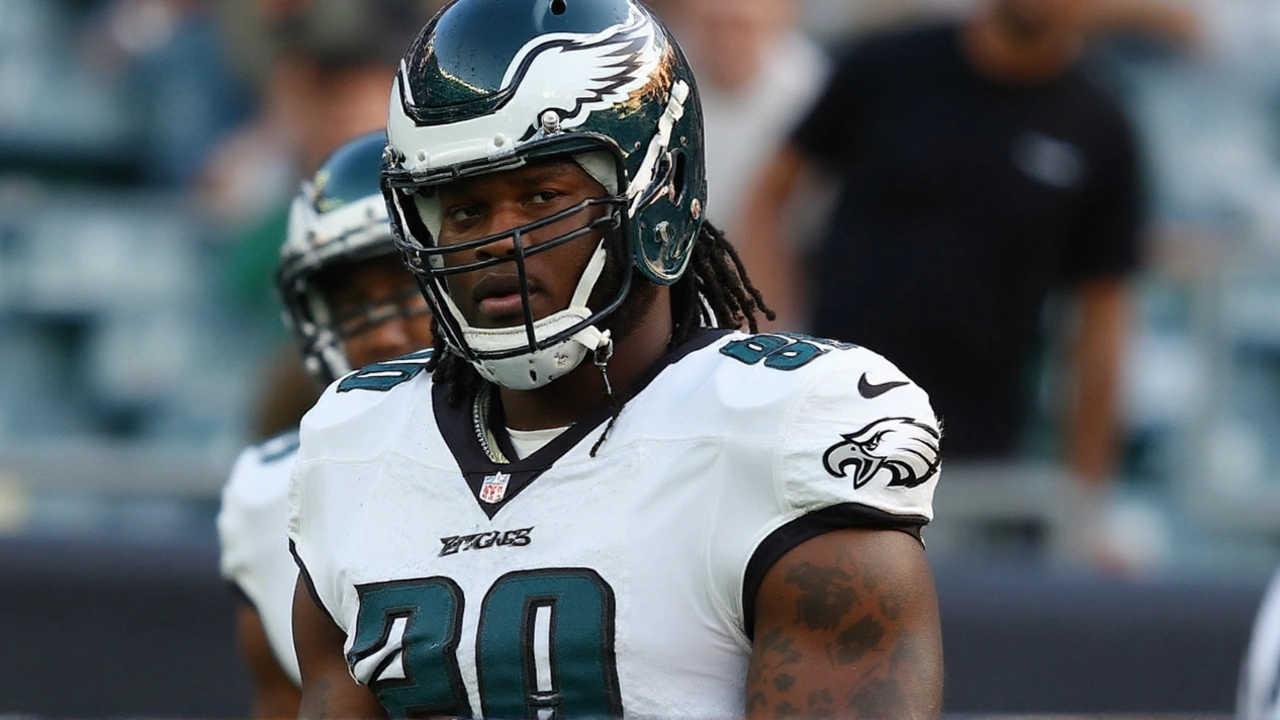A season-opener turned on its head in six seconds
Six seconds. That’s how long it took for the NFL’s new season to get its first ejection, a 15-yard penalty, and a full-on controversy. Philadelphia defensive tackle Jalen Carter was tossed almost immediately after the opening kickoff against the Dallas Cowboys for spitting on quarterback Dak Prescott, a shocking flashpoint on a night the Eagles had set aside to celebrate their Super Bowl title with a banner-raising at Lincoln Financial Field.
The sequence unfolded right after the return team jogged off. Players jawed, emotions spiked, and cameras caught Carter spitting on Prescott’s jersey as the Cowboys quarterback turned toward an official. The flag came fast. The crew’s ruling: unsportsmanlike conduct and an ejection for a non-football act. Referee Shawn Smith told a pool reporter that an official directly observed the spit—under league rules, that’s a disqualifiable offense.
The penalty handed Dallas a short field before the first snap from scrimmage. The Cowboys cashed in on the opening drive with a one-yard plunge by Javonte Williams, and the stadium mood flipped from party to uneasy. As Carter walked off, helmet tucked behind his back, boos rolled through the lower bowl. A few teammates tried to pull him aside; he never broke stride.
Broadcast replays later showed another angle: Prescott appeared to spit moments before Carter’s act, though the clip didn’t clearly show his target. After the game, Prescott said he had been joking with a lineman and “needed to spit,” implying it wasn’t directed at Carter. It didn’t matter much in the moment. Officials treated Carter’s spit as an act at an opponent, and that was that.
Carter did not duck the blame. He apologized in the locker room, saying he “felt bad” for the team and fans and promised it wouldn’t happen again. It was plain, not rehearsed, and it cut through the noise. Still, an apology doesn’t erase the impact. The Eagles lost their All-Pro interior disruptor immediately. The Cowboys got momentum, field position, and a statement on the first series of the year.
Context matters here. This was banner night. Emotions were already cranked up. Eagles-Cowboys doesn’t need extra kerosene, but it got it anyway. And in a sport where first impressions shape narratives for weeks, this one will stick: the champs handed away 15 yards before the playbook even opened.

What we know, what’s next, and the wider fallout
Here’s the clean version of the timeline. After the kickoff, Carter and Cowboys players exchanged words. Carter spit on Prescott. An official saw it and threw a flag. Because spitting is a non-football act, it qualifies for disqualification. The result was a 15-yard penalty assessed before the first offensive snap, Dallas scored on the ensuing drive, and Carter was out for the night.
Now the review process. On-field discipline like this typically lands on the NFL’s weekly fine schedule, which covers unsportsmanlike conduct. The league office also reviews ejections for potential additional discipline. That can range from a fine to, in rare cases, a suspension if the act is judged flagrant or part of a larger pattern. Reporting from Pro Football Talk framed “respect for the opponent” as a focal point for decision-makers and suggested Carter’s remorse could factor into the outcome. The league usually confirms fines by the weekend following a game; suspensions, if any, are announced sooner.
There’s precedent for harsh responses to spitting. Past incidents in the NFL have drawn fines and, in some cases, suspensions. The rationale isn’t complicated: spitting isn’t a football play. It’s disrespect, it can escalate tensions, and it invites retaliation. Leagues across sports—from soccer to hockey—treat it as a bright-line infraction for the same reason.
How much did it change the game? More than a little. Carter’s presence in the middle changes coverages and run fits. He commands double teams. He wrecks timing. Remove that, and rotations shift, snaps climb for depth players, and matchups tilt. The Cowboys leaned into the short field and punched in points while the Eagles’ defense recalibrated on the fly. Even as Philadelphia steadied by halftime, they spent the night playing uphill without one of their most important pieces.
Carter’s rise had been one of the Eagles’ smoother talking points all summer. Drafted ninth overall in 2023, he broke out last season with 4.5 sacks and 42 total tackles and earned a Pro Bowl nod. Coaches and teammates describe the ripple effect: when he wins his gap, edges get cleaner looks, blitzes hit faster, and the back end benefits because the ball comes out on time or off-platform. That kind of gravitational pull is rare for a 24-year-old interior lineman. That’s what made the ejection sting even more for a defense that’s built around line dominance.
The franchise also knows every off-field mention involving Carter lands differently. In January 2023, he was involved in a car crash in Georgia that killed a former teammate and a team staffer; he later pleaded no contest to reckless driving and street racing. Philadelphia’s front office—publicly and privately—has talked about support structures, mentorship, and maturity. General manager Howie Roseman recently called him a special talent who opens doors for everyone else. Nights like this test those claims and put the spotlight back on accountability and growth.
What about Prescott’s role? The TV angles stirred debate, but the officiating decision rested on what was observed as an act at an opponent. Prescott told reporters he wasn’t aiming at Carter and tried to downplay the whole exchange. That explanation won’t change the flag already thrown, but it could shape how fans and players view the moment. Rivalry games thrive on perception. One frame can look like instigation; the next can look like a misunderstanding. The rulebook doesn’t parse intent well in real time. Ejections hinge on what an official definitively sees.
Inside the stadium, you could feel the temperature spike. Booing at the announcement. Groans when the ball moved up 15 yards. Anxious silence when Dallas’ drive ended in the end zone. These opener atmospheres are already charged—banners, family on the field, highlight reels on the videoboard. Then the sport snapped back to the hard reality of officiating and discipline. That whipsaw is jarring for players and fans.
So what comes next for the Eagles? In the short term, it’s about recalibrating the defensive rotation and managing the noise. Coaches usually keep the message simple after something like this: don’t let one mistake beat you twice. That means no spillover penalties, no retaliation, and a laser focus on fits and assignments. It also means trusting the depth chart while a national conversation swirls around one player.
For Carter, the path is straightforward but not easy: own the act, absorb any discipline, and earn back slack with clean play. Apologies are a start. Consistency is the proof. The NFL season is long, and reputations can be rebuilt fast with quiet Sundays and steady tape. But the league office will still make its call, and opponents will still test his composure—especially in rivalry games.
For the league, this is a reminder that early-season tone-setting matters. The NFL has hammered sportsmanship in memos to clubs in recent years, asking coaches to reinforce it in team meetings. Spitting falls squarely in that category. The optics—banner night, national TV, star players—only amplify the message they’ll want to send with whatever fine or suspension follows.
Zoom out, and you see a few clear threads:
- The act was seen by an official and ruled a non-football infraction, triggering an immediate ejection.
- The 15-yard penalty helped set up Dallas’ opening touchdown and tilted the first quarter.
- Prescott downplayed his role on replay; Carter apologized and vowed it wouldn’t happen again.
- The league’s review will likely produce a fine and could bring more if the act is deemed flagrant.
None of this happens in a vacuum. The Eagles and Cowboys live inside one of the league’s most heated rivalries, and the calendar magnifies everything in Week 1. Every camera is pointed at the field. Every moment gets rerun, slowed down, debated. Carter’s ejection would have made noise in Week 11; on opening night, it dominated the conversation.
There’s also the human side. Players spit on fields. It’s part of the reality of a sport played in mouthguards and dust and heat. The line is where it lands and why. Aim it at a player, and it becomes a statement, not a habit. That’s why the rulebook treats it differently and why officials moved fast. It sends a signal to both sidelines: keep the edge; lose the cheap shots.
Coaches love to say the game is about poise as much as power. This is what they mean. The hit you don’t take. The word you swallow. The step back before the whistle. Carter crossed that line, paid for it in the moment, and now waits to see how much more he’ll pay when the league office weighs in. He said it won’t happen again. The next few weeks will show if that promise sticks.
As the night wore on, the football settled down. The Eagles mixed coverages, tightened run fits, and clawed back into rhythm. Dallas leaned on balance. The crowd found its voice again between big plays and tense reviews. But the snapshot of the season’s first minutes—banner raised, rivals face to face, a flag in the air—will be the moment people remember. Not because it decided the game by itself, but because it turned a celebration into a test before the scoreboard even mattered.
